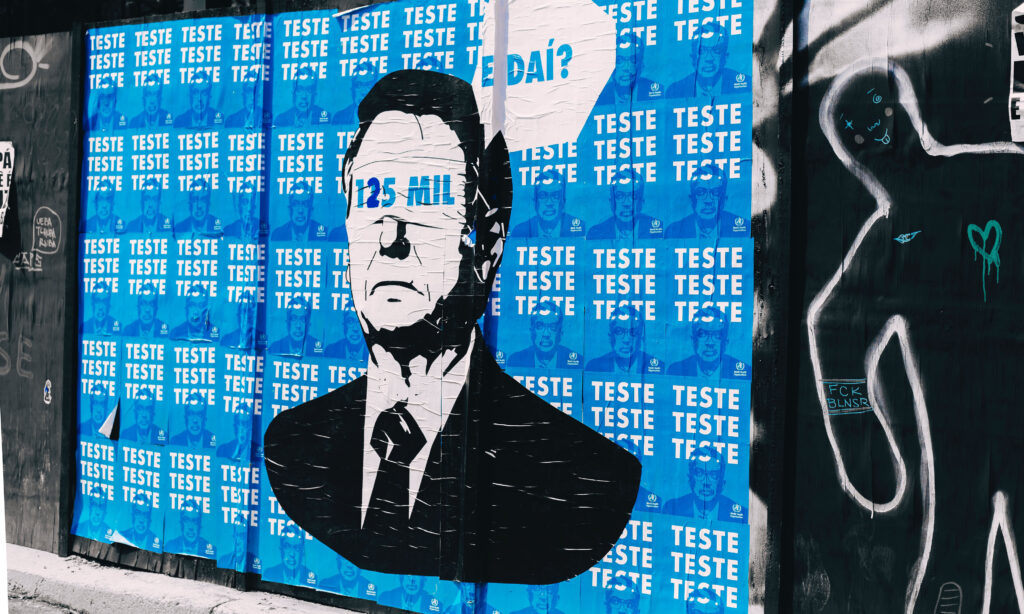Rogerio Schlegel, Assistant Professor at the Department of Social Sciences, Federal University of Sao Paulo (Unifesp), Guarulhos, SP, Brazil.
 The right-wing populist wave that has taken place in the United States, the United Kingdom, and other countries usually is supported by economic losers and resentful citizens longing for the coming back of a time when their nations supposedly were “great”. The article “Political impacts of education: from the belief in a new citizen to Bolsonaro’s election [Impactos políticos da educação: da aposta no novo cidadão à eleição de Bolsonaro]”, appeared in Educação & Sociedade (vol. 42), has analized data from the 2018 Brazilian Electoral Study [Estudo Eleitoral Brasileiro, de 2018] and has found evidence that the right-wing advance has remarkable particularities in Brazil.
The right-wing populist wave that has taken place in the United States, the United Kingdom, and other countries usually is supported by economic losers and resentful citizens longing for the coming back of a time when their nations supposedly were “great”. The article “Political impacts of education: from the belief in a new citizen to Bolsonaro’s election [Impactos políticos da educação: da aposta no novo cidadão à eleição de Bolsonaro]”, appeared in Educação & Sociedade (vol. 42), has analized data from the 2018 Brazilian Electoral Study [Estudo Eleitoral Brasileiro, de 2018] and has found evidence that the right-wing advance has remarkable particularities in Brazil.
The research has developed statistical analysis to isolate the independent effects on voting of education, income, occupation, age, religion, and other individual features, departing from a representative national survey conducted after the election. The results indicate that income and occupation were the best predictors of voting for Jair Messias Bolsonaro. Education did not have a consistent influence on this choice, despite the conventional expectation that the better educated would reject a candidate notorious for advocating authoritarian values and despising diversity.

Image:Jade Scarlato.
The article is part of a dossier on “Education and Political Behavior” and has also tested the hypothesis that the Brazilian education might have fading effects on political participation and democratic support in recent years. The analysis of national surveys from 1989 to 2018 has revealed that the education impact on political behavior still holds, with one exception: the appreciation of voting. In 2018, there was no consistent differentiation among those with the lowest and the highest levels of educational attainment regarding the assessment of the vote.
The findings point to the relevance of taking into account the particularities of Brazil when developing explanations for populist support. A hypothesis to be tested involves the possibility that a rejection to equality – either economic or regarding minorities rights – boosts the populist vote. At the same time, the relative disregard for voting among better-educated citizens might indicate a disenchantment with democracy, primarily salient among the most critical citizens. The 2020 election mobilized other political behavior dynamics, particularly for being held at the local level, leaving these hypotheses to be thoroughly investigated in 2022.
The research Unequal Democratization [Democratização Desigual] has been supported by the São Paulo State Research Foundation (Fapesp); datasets on public attitudes were gratuitously provided by the Center of Public Opinion Studies [Centro de Estudos da Opinião Pública], of state university Unicamp.
References
APRESENTAÇÃO DO DOSSIÊ. Educ. Soc. [online]. 2021, vol. 42, e247881. ISSN: 1678-4626 [viewed 4 March 2021]. https://doi.org/10.1590/es.247881. Available from: http://ref.scielo.org/gbx5rg
INGLEHART, R. F. and NORRIS, P. Trump, Brexit, and the Rise of Populism: Economic Have-Nots and Cultural Backlash. HKS Working Paper n. RWP 16-026. Cambridge, MA: Harvard Kennedy School, Aug. 2016. (Faculty Research Working Paper Series.) Available from: https://is.muni.cz/el/fss/jaro2018/POL494/um/premiovy_ukol/Inglehart-Norris-populism.pdf
MOTA, C. V. “Bolsonaro é líder mais isolado do populismo de direita hoje”, diz pesquisador do extremismo político. BBC News Brasil, São Paulo, 3 maio 2020. Available from: https://www.bbc.com/portuguese/internacional-52465613
SCHLEGEL, R. The decreasing political rewards of education in Brazil. Braz. political sci. rev. [online]. 2010, vol. 5, Selected edition. ISSN: 1981-3821 [viewed 4 March 2021]. Available from: http://ref.scielo.org/nkk3js
TAMAKI, E. R. and FUKS, M. Populism in Brazil’s 2018 general elections: an analysis of Bolsonaro’s campaing speeches. Lua Nova [online]. 2020, no. 109, pp. 103-127. ISSN: 1807-0175 [viewed 4 March 2021]. https://doi.org/10.1590/0102-103127/109. Available from: http://ref.scielo.org/crvdqw
To read the article, acess
SCHLEGEL, R. Impactos políticos da educação: da aposta no novo cidadão à eleição de Bolsonaro. Educ. Soc. [online]. 2021, vol. 42, e240566. ISSN: 1678-4626 [viewed 4 March 2021]. https://doi.org/10.1590/es.240566. Available from: http://ref.scielo.org/6s9qns
External links
Academia.edu: https://unicamp.academia.edu/EducaçãoeSociedade
Educação & Sociedade – ES: www.scielo.br/es
Facebook Educação & Sociedade: https://www.facebook.com/ES.cedes/
LinkedIn Educação & Sociedade: www.linkedin.com/in/educação-e-sociedade
Mendeley: https://www.mendeley.com/profiles/educao-e-sociedade/
Rogerio Schlegel: https://www.unifesp.br/campus/gua/docentes-ciencias-sociais/202-rogerio-schlegel
Schlegel 2021 – Educação & Sociedade – Material suplementar: https://repositoriodedados.unifesp.br/dataset.xhtml?persistentId=doi:10.5072/FK2/3HVW0Q
Twitter Educação & Sociedade: https://twitter.com/ES_cedes
Como citar este post [ISO 690/2010]:













Recent Comments